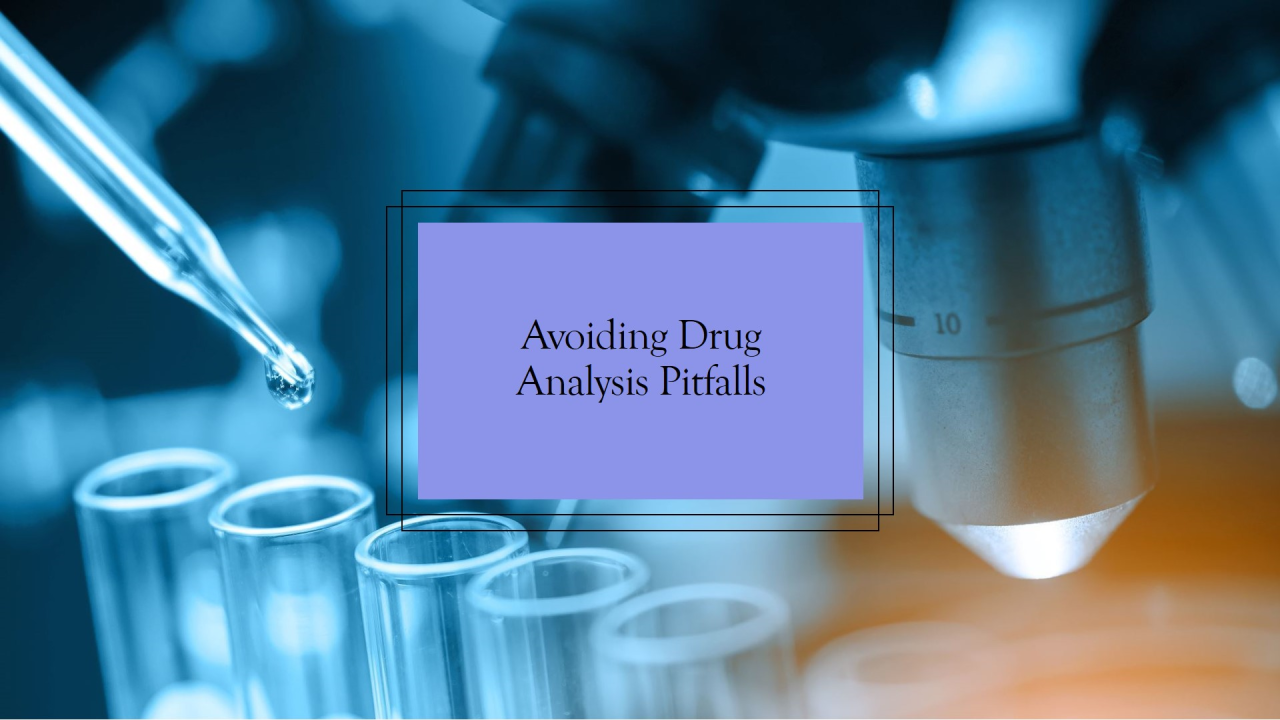
Drug Analysis Pitfalls: Navigating Common Errors in Pharma Testing"
Rohan Jindal
M.Pharm (Pharmaceutical Analysis) | UIPS, Panjab University | GPAT Qualified | Class of 2024-2026
Standard Solution Setbacks: Mistakes in Preparation and Handling of Reference Standards
Standard solutions are crucial in pharmaceutical analysis as they provide a benchmark for quantifying the concentration of active ingredients and impurities in drug formulations. Accurate preparation and handling of reference standards are essential for ensuring the reliability of analytical results. However, several common mistakes can undermine the integrity of standard solutions, leading to erroneous outcomes and regulatory compliance issues.
Common Mistakes in the Preparation and Handling of Reference Standards
During an FDA inspection, a laboratory was cited for failing to maintain adequate records of the preparation and storage of reference standards. The lack of proper documentation led to an inability to verify the integrity of standards used in testing, raising concerns about the accuracy of analytical results.
Standard solutions are foundational to the accuracy of pharmaceutical testing. Common mistakes in their preparation and handling can have serious repercussions for product quality and regulatory compliance. By implementing stringent procedures, ensuring proper training, and maintaining meticulous documentation, laboratories can mitigate these risks and uphold the integrity of their analytical processes.
#PharmaIndustry #DrugAnalysis #ReferenceStandards #QualityControl #PharmaceuticalTesting #LaboratoryBestPractices
?? For more details, please click the comments section below! ??
M.Pharm (Pharmaceutical Analysis) | UIPS, Panjab University | GPAT Qualified | Class of 2024-2026
1 个月Inadequate Documentation Description: Failing to document the preparation process, including reagent lot numbers, dates, and concentrations, can create challenges in traceability and quality assurance. Impact: Poor documentation can complicate investigations into analytical failures and lead to non-compliance during audits. Prevention Tip: Implement a robust documentation system that tracks all details related to the preparation and handling of reference standards.
M.Pharm (Pharmaceutical Analysis) | UIPS, Panjab University | GPAT Qualified | Class of 2024-2026
1 个月Improper Dilution Techniques Description: When diluting stock solutions to prepare standard solutions, using incorrect techniques (e.g., not mixing thoroughly or using the wrong volumetric glassware) can lead to inaccuracies. Impact: Inconsistent mixing or dilution can result in variable concentrations, impacting assay results. Prevention Tip: Always use calibrated volumetric glassware and ensure thorough mixing of solutions after dilution.
M.Pharm (Pharmaceutical Analysis) | UIPS, Panjab University | GPAT Qualified | Class of 2024-2026
1 个月Lack of Standard Operating Procedures (SOPs) Description: Without established SOPs for preparing and handling reference standards, inconsistencies can arise from different analysts or during different batches. Impact: Variability in preparation methods can lead to discrepancies in standard solutions, affecting overall test accuracy. Prevention Tip: Develop comprehensive SOPs for the preparation and handling of reference standards. Ensure all personnel are trained and adhere to these procedures.
M.Pharm (Pharmaceutical Analysis) | UIPS, Panjab University | GPAT Qualified | Class of 2024-2026
1 个月Improper Storage Conditions Description: Reference standards should be stored under specific conditions (e.g., temperature, light exposure) to maintain their stability. Failing to do so can lead to degradation. Impact: Degraded standards can lead to unreliable results, impacting the validity of test analyses. Prevention Tip: Follow the manufacturer’s recommendations for storage conditions and regularly monitor the storage environment.
M.Pharm (Pharmaceutical Analysis) | UIPS, Panjab University | GPAT Qualified | Class of 2024-2026
1 个月Incorrect Concentration Calculation Description: Errors in calculating the concentration of standard solutions can occur due to incorrect weighing, misunderstanding of dilution factors, or failing to account for solvent volume. Impact: Incorrect concentrations can lead to inaccurate calibration curves, affecting the quantification of analytes in test samples. Prevention Tip: Always double-check calculations and use standardized formulas for dilution. Consider using a balance with a higher precision for weighing.